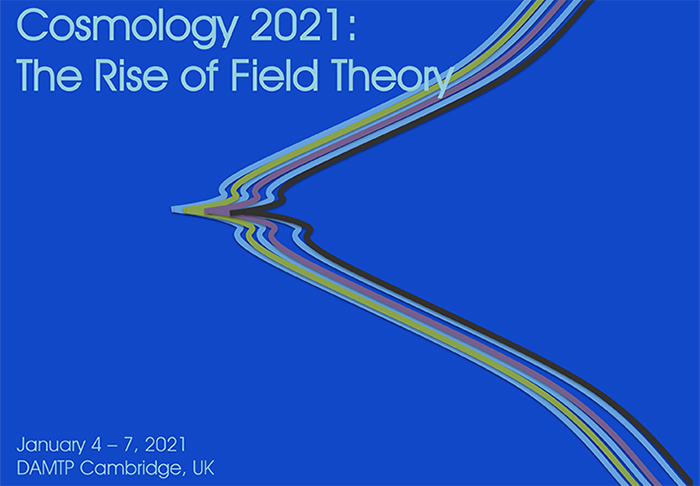4th - 7th January 2021
Cosmology is entering a new era. On the theoretical side, advances in our understanding of the allowed structures of cosmological correlators, new UV constraints on IR physics in the form of swampland and positivity constraints, and the vast constraints on dark energy models imposed by gravitational wave observations, have led to a shift in the way cosmologists approach model building. On the observational side, the coming decade will see 3D cosmological surveys vastly increase our knowledge of the interactions that were at play in the early universe, and the physics responsible for the current period of cosmic acceleration.
This workshop brought together cosmologists working on both early and late universe physics. Over the first three days, the workshop was devoted to recent developments in theoretical cosmology with the days covering: late universe physics and gravity, obstructions to UV completion, and early universe cosmology and bootstrap approaches. The final day of the workshop focused on large scale structure, covering both theoretical and observational approaches. Each day consisted of four talks from leading cosmologists and ended with a panel discussion where the day's topics were open to discussion between a chair and 3/4 panel members.
With a very exciting decade of cosmology ahead, now is a great time to review the current state of play, and look forward to new advances in our understanding of the universe.
Two more events were associated with this workshop:
The first was a Cambridge-Munich collaboration meeting that that tookplace on January 7 and 8, with the January 7 program being shared with this workshop. For more information see here.
The second was a public event on Friday evening, January 8, in Celebration of Stephen Hawking's Birthday. Two online public outreach lectures were delivered by Professor Sir Roger Penrose, recipient of the 2020 Nobel Prize in Physics, and Professor Eiichiro Komatsu, Director of the Max-Planck Institute for Astrophysics in Munich. The lectures were livestreamed here:
For more information see here.

